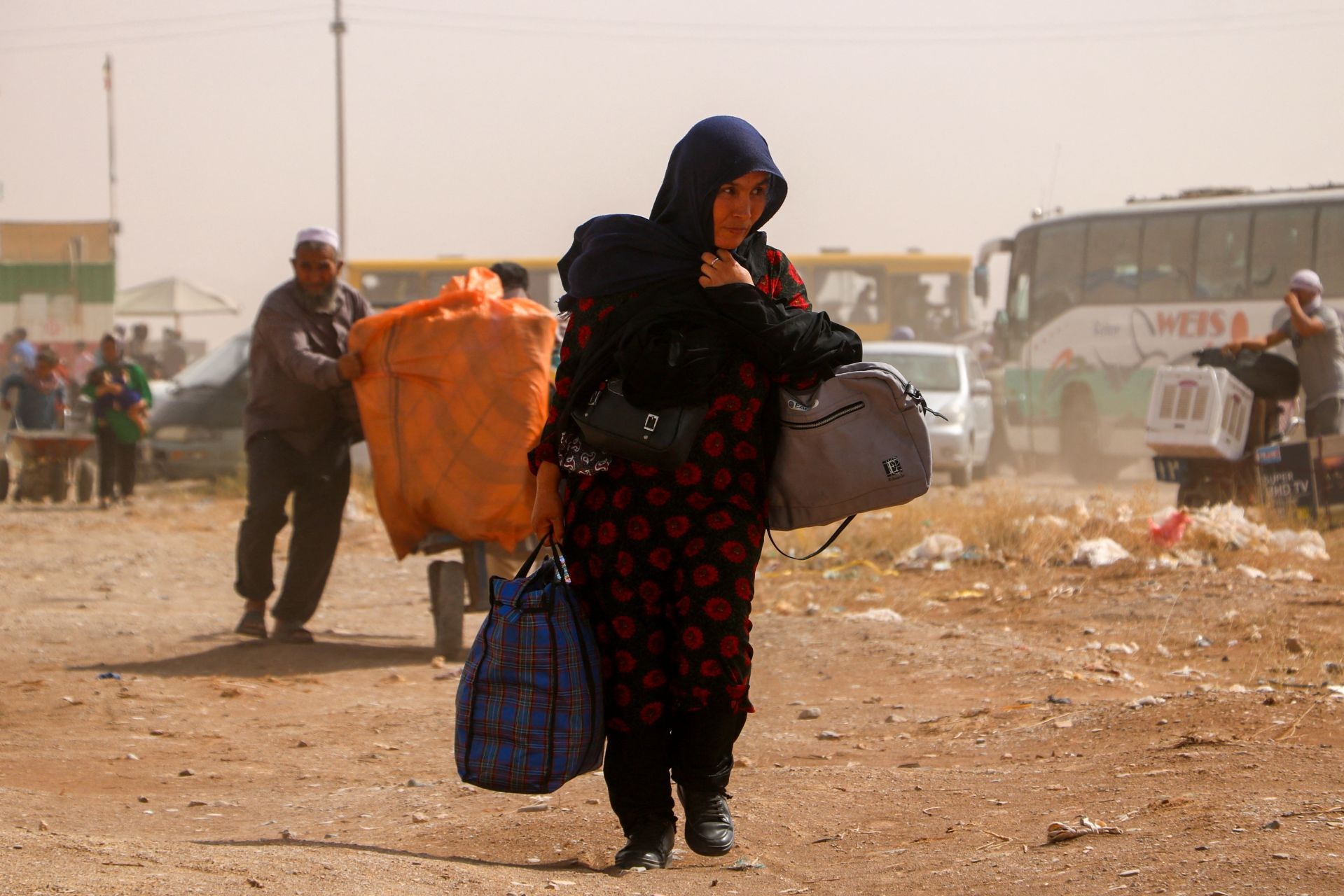As a government-imposed deadline approaches, millions of Afghan migrants and refugees in Iran are facing the threat of arrest and deportation.
The looming deadline, which falls on a Sunday, July 6, 2025, has intensified concerns among human rights organizations and the international community.
The situation is unfolding amid heightened tensions following a brief but intense conflict with Israel, during which the United States launched air strikes on Iran’s nuclear facilities.
Iran currently hosts around 4 million Afghan nationals, many of whom have lived in the country for decades.
The majority fled Afghanistan seeking safety from war, extreme poverty, and the rule of the Taliban.
Despite these dire circumstances, Iran began a crackdown in 2023 aimed at removing foreign nationals it deems to be residing in the country without proper documentation.
In March 2025, Iranian authorities ordered all undocumented Afghans to leave the country voluntarily by a set deadline or face forced expulsion.
Since then, more than 700,000 Afghan nationals have reportedly left Iran, with over 230,000 leaving in June alone, according to the United Nations’ International Organization for Migration (IOM).
However, hundreds of thousands more still face the threat of deportation.
Tehran insists that it is not specifically targeting Afghan nationals, claiming the measures are part of broader efforts to enforce immigration laws.
“We have always tried to be generous hosts,” said government spokesperson Fatemeh Mohajerani.
“But national security remains a top concern. Those residing in Iran illegally must return to their countries.”
Humanitarian organizations have raised alarms about the potential fallout of these mass returns.
Afghanistan remains one of the most fragile and impoverished nations in the world.
The United Nations High Commissioner for Refugees (UNHCR) has expressed deep concern over the scale and speed of the deportations.
During the recent Israel-Iran conflict, the number of Afghans deported daily surged to over 30,000, compared to a pre-war average of about 2,000.
UNHCR officials on the ground in Afghanistan describe chaotic scenes at border crossings.
Arafat Jamal, the agency’s representative in Afghanistan, said, “People are arriving on buses, sometimes five buses at a time, disoriented, exhausted, and hungry.
“Many don’t know where to go next.”
He added that while some of the returns were voluntary, a large share were deportations.
For many Afghans, especially those born and raised in Iran, the order to leave is devastating. Batoul Akbari, an Afghan-Iranian restaurant owner in Tehran, described the emotional toll.
“There’s a rising wave of anti-Afghan sentiment,” she said.
“People are being forced to leave the only home they’ve ever known.”
Akbari explained that although their heritage is Afghan, many feel just as Iranian.
Mohammad Nasim Mazaheri, a student whose family was forced to leave, echoed the sentiment. “These deportations are breaking families apart,” he said.
Al Jazeera’s correspondent Resul Serdar reported from Tehran that Afghans are increasingly being scapegoated for Iran’s ongoing economic crisis.
Political rhetoric and misinformation on social media have fueled accusations that Afghans are responsible for job shortages, inflation, and other societal problems.
The recent conflict with Israel has only added fuel to the fire, with unverified claims circulating that Afghans were recruited as spies by foreign intelligence agencies.
The UN estimates that of the 1.2 million Afghans who have returned to Afghanistan this year, more than half came from Iran, prompted by Tehran’s ultimatum.
Aid agencies warn that without proper infrastructure and economic support in Afghanistan, such mass returns could deepen an already critical humanitarian crisis.
As the Sunday deadline arrives, Iran shows no sign of backing down.
For many Afghan families, the future remains uncertain, caught between a home they fled and another that is now forcing them out.







